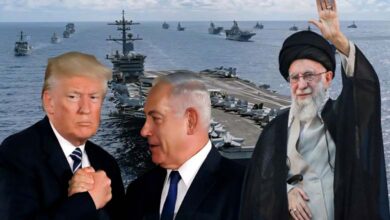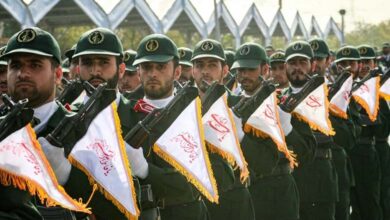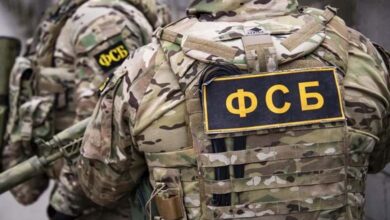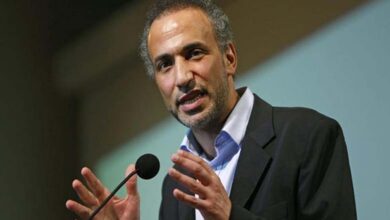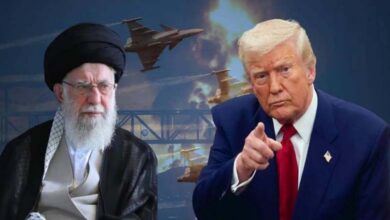Russia and Ukraine: Will the Third Winter Melt the “Ice of War”?
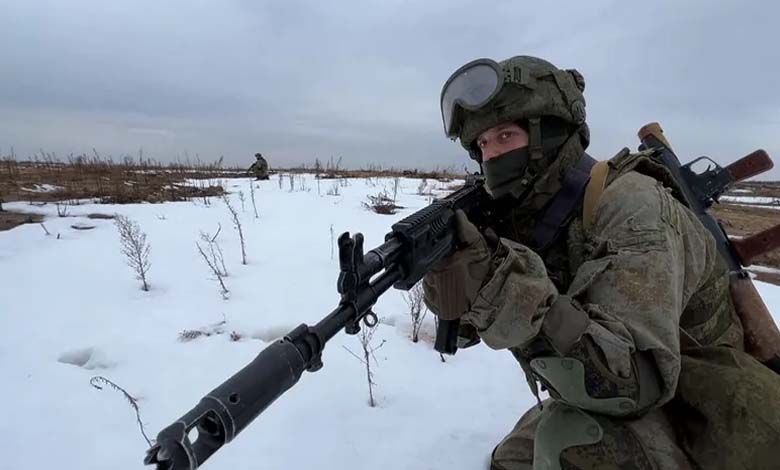
As temperatures drop below zero, Ukraine faces grim challenges. Will the third winter of war break the chill of this difficult scenario?
-
Ukrainian Weapons Threaten Putin’s Summer Residence.. Moscow Strengthens Air Defenses
-
Putin and Nuclear Development: Features of an “Ongoing Plan” and “Return of Fear”
The British newspaper Financial Times revealed in a report that Russia and Ukraine are discussing a ceasefire on strikes against energy infrastructure in their respective countries.
The newspaper quoted senior Ukrainian officials stating that Kiev “has been seeking to resume negotiations that came close to an agreement in August before going off track due to the ongoing incursion in the Kursk region.”
-
Telegram Messages Reveal: Was Russia Well-Prepared for the Ukrainian Attack and Border Incursion?
-
Ukrainian Incursion in the Largest Attack on Russia Since World War II: What Is Happening on the Border?
A diplomat familiar with the negotiations said: “There are now talks about energy facilities.”
An agreement, if it materializes, would represent, according to the newspaper, the largest de-escalation in the conflict since the outbreak of war in February 2022.
Earlier this month, Ukrainian President Volodymyr Zelensky noted that an agreement to protect energy facilities could indicate Russia’s willingness to engage in broader peace talks.
-
Wagner’s Founder Returns from the Grave: He Warned of Ukrainian Encroachment and Proposed a Solution
-
Ukrainian Weapons Threaten Putin’s Summer Residence.. Moscow Strengthens Air Defenses
According to a senior Ukrainian official, Moscow and Kiev have already reduced the pace of attacks on each other’s energy infrastructure in recent weeks, as part of the understanding reached by their intelligence agencies.
Ukraine now heavily relies on its nuclear facilities and energy imports from European partners.
Will Putin Agree?
However, Financial Times cited a former high-ranking Kremlin official familiar with the discussions, who excluded the possibility of President Vladimir Putin agreeing to a deal until Ukrainian forces are expelled from the Kursk region, where they still control about 600 square kilometers of territory.
-
Kharkiv: The Tank Manufacturing Hub Destroyed by the Ukrainian War
-
“Priority Map”: New Ukrainian Army Commander’s plan to defeat Russia
The same official, whose name was not disclosed by the newspaper, stated: “As long as the Ukrainians occupy land in Kursk, Putin will strike Zelensky‘s energy infrastructure.”
Nonetheless, Ukraine plans to continue targeting objectives, including oil refineries, to pressure Russia to engage in negotiations, according to the senior Ukrainian official.
The latter added that apart from Kiev’s long-range offensive capabilities, which have allowed it to strike energy targets and military facilities within Russia, “we do not have much leverage to force the Russians to negotiate.”
-
The World Gateway: How Did the Russo-Ukrainian Crisis Impact Navigational Passages in the Black Sea?
-
“Difficult” Talks in Saudi Arabia with the Aim to End the Ukrainian War
The invasion of Kursk on August 6 led to Moscow’s withdrawal from a previous round of negotiations.
Dmitry Peskov, the Kremlin spokesperson, declined to comment on these discussions. Zelensky‘s office did not immediately respond to the newspaper’s requests for comment.
Previous Attempts
Previously, other attempts to mediate a deal had failed. Four Ukrainian officials told Financial Times that Kiev and Moscow had reached an “implicit agreement” last fall not to strike each other’s energy facilities.
-
Zelensky Pledges Increase in Ukrainian-Made Weapons for Victory Against Russia
-
Zelensky Heads Into New War, Wave of Exclusion Hits Ukrainian Officials
As a result, Russia refrained that winter from carrying out the kind of large-scale attacks on Ukraine’s energy infrastructure that it had executed in 2022-2023, according to Ukrainian officials and a source in Washington familiar with the situation.
The sources stated that this agreement was supposed to pave the way for an official deal.
However, Kiev resumed drone attacks on Russian oil facilities in February and March of this year, seeking to increase pressure on Moscow after its failed counteroffensive in 2023.
-
Ukrainian village bombed… Russian separatists and Kyiv blame each other for cease-fire violations
-
Pokrovsk… the “Gateway to Donetsk” that Russia is striving to seize
Despite warnings from the White House to cease strikes, Kiev continued to apply pressure, with Moscow considering that the implicit agreement had been violated, according to sources familiar with the situation.
Russia then escalated its response, launching a barrage of long-range missiles targeting power stations across Ukraine, including the Trébilska thermal power plant located 40 kilometers from Kiev, which was completely destroyed.
As part of the Ukrainian campaign, at least 9 of Russia’s 32 major refineries have been bombed since the beginning of 2024.
-
“Victory Plan”… European Criticism Disrupts Zelensky
-
Missile Defense: Iran or Russia? Ukraine Angered by Israel’s “Special Treatment”
Serguei Vakoulinco from the Carnegie Russia Eurasia Center stated that at the height of the attacks in May, 17% of Russia’s refining capacity was affected, but most of it has since been repaired.
Russia’s response to Kiev’s attacks plunged much of Ukraine into temporary darkness and reduced power generation capacity by 9 gigawatts – half of what Ukraine needed last year to get through the winter. Kiev has proven unable to fully restore that capacity.
Last week, Putin stated that Russia is only ready to consider “all divergences in peace agreements based on facts on the ground.”
-
Western Authorization to Strike Russia… Zelensky Seeks an “Italian Bullet”
-
CNN reveals details of the deadliest Russian attack on Ukraine since the start of the war
He had previously demanded that Ukraine relinquish full control of four regions along the front line that Moscow only partially controls, as well as a complete withdrawal of Western sanctions.
Ukraine views these conditions as unacceptable for any potential peace negotiations.


